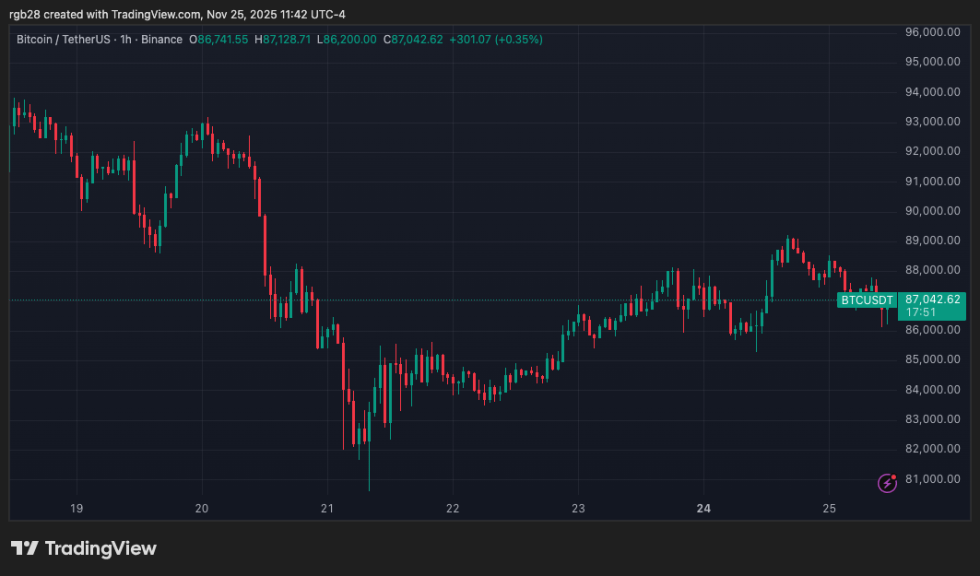South Korea’s long-awaited stablecoin legislation is in danger of being delayed until next year, as financial authorities spar with the Bank of Korea (BOK) over the role of banks in the sector.
The Bank of Korea and financial regulators are at loggerheads
On Tuesday, Korea JoongAng Daily I mentioned The prospective stablecoin framework, which is expected to come by the end of 2025, appears unlikely to be passed this year, arguing that while regulators aim to open up the market to technology companies, the central bank insists that financial institutions must hold a majority stake in the issuance of any token tied to the Korean won.
According to local news media, the Bank of Korea and regulators agree that banks should be involved in issuing currencies linked to the won, but they disagree on the extent of the role of financial institutions.
The central bank is pushing for a group of banks that own at least 51% of any stablecoin issuer to seek regulatory approval. At the same time, regulators are reportedly willing to seize the opportunity to innovate Korea’s financial architecture, involving diverse players in the process.
Korea JoongAng Daily emphasized, “Even if the two sides agree on the ownership issue, other issues remain unresolved, including restrictions on the total issuance amount and the regulatory framework.”
Furthermore, the BOK is allegedly calling for the establishment of an inter-agency council legally authorized to make stablecoin policy decisions through unanimous voting. However, financial regulators appear to be backing down, citing the lack of legal basis for this requirement.
In July, Bank of Korea Governor Lee Chang-yong Express Concerns about the issuance of stablecoins by non-banking entities, claiming that digital assets could confuse monetary policy and foreign exchange regulations.
“If many non-bank institutions issue stablecoins pegged to the Korean won, it could lead to confusion similar to that caused by the issuance of private currencies in the 19th century,” Lee stressed, adding that if tokens pegged to the won were allowed to be issued “indiscriminately,” it could conflict with foreign exchange liberalization policies.
Last month the central bank Released A report warns that these digital assets could open up new possibilities for the Korean economy, but they could also “sow the seeds of new instability.” In the report, the Bank of Korea emphasized that the promise behind the stablecoin raises unrealistic expectations in the market.
“Allowing non-banking companies to issue stablecoins is essentially equivalent to allowing them to engage in narrow banking – simultaneously issuing currency and providing payment services,” the central bank claimed.
In addition, he warned that online platform companies that issue their own stablecoins could integrate payment and settlement services into their ecosystems, further strengthening “monopoly power” and potentially changing the profit structure of banks.
Korea’s stablecoin sector faces regulatory challenges
An official from the Bank of Korea, on condition of anonymity, told Korea JoongAng Daily that “banks, which are already subject to regulatory oversight and have extensive experience in dealing with anti-money laundering protocols, are in a better position to act as majority shareholders in stablecoin issuers.”
However, the report noted that financial authorities are concerned that giving a majority stake to banks could reduce the participation of technology companies and restrict innovation in the Korean market.
like I mentioned By Bitcoinist, financial institutions in Korea have been preparing for two possible scenarios. Notably, the sector has explored a business model in which banks create a joint venture to collectively issue stablecoins, while also approaching several non-banking companies to prepare for the upcoming framework.
The regulatory standoff appears to have left the market in limbo, with some technology companies actively preparing for approval while others remain cautious due to the unclear regulatory direction.
“There is doubt about whether the won-based stablecoin will catch on, and with no clarity on approval rules, most companies are taking a wait-and-see approach,” an official at a fintech company revealed.
The Korea JoongAng Daily cited a recent report by Hashed Open Research, which said that “to maintain competitiveness in the digital economy, Korea must adopt a capital market-led system.” building Rather than bank-centric ones,” similar to major issuers like Tether and Circle.
Kim Sang-bong, a professor of economics at Hansung University, believes that “to gain public trust, stablecoins cannot be left entirely in the hands of technology companies, and financial institutions must participate.”
“But if banks dominate, innovation may be stifled,” Kim concluded. “A more realistic solution may be to start licensing card companies and other companies focused on payments.”

Bitcoin (BTC) trades at $87,042 in the one-week chart. Source: BTCUSDT on TradingView
Featured image from Unsplash.com, chart from TradingView.com

Editing process Bitcoinist focuses on providing well-researched, accurate, and unbiased content. We adhere to strict sourcing standards, and every page is carefully reviewed by our team of senior technology experts and experienced editors. This process ensures the integrity, relevance, and value of our content to our readers.





